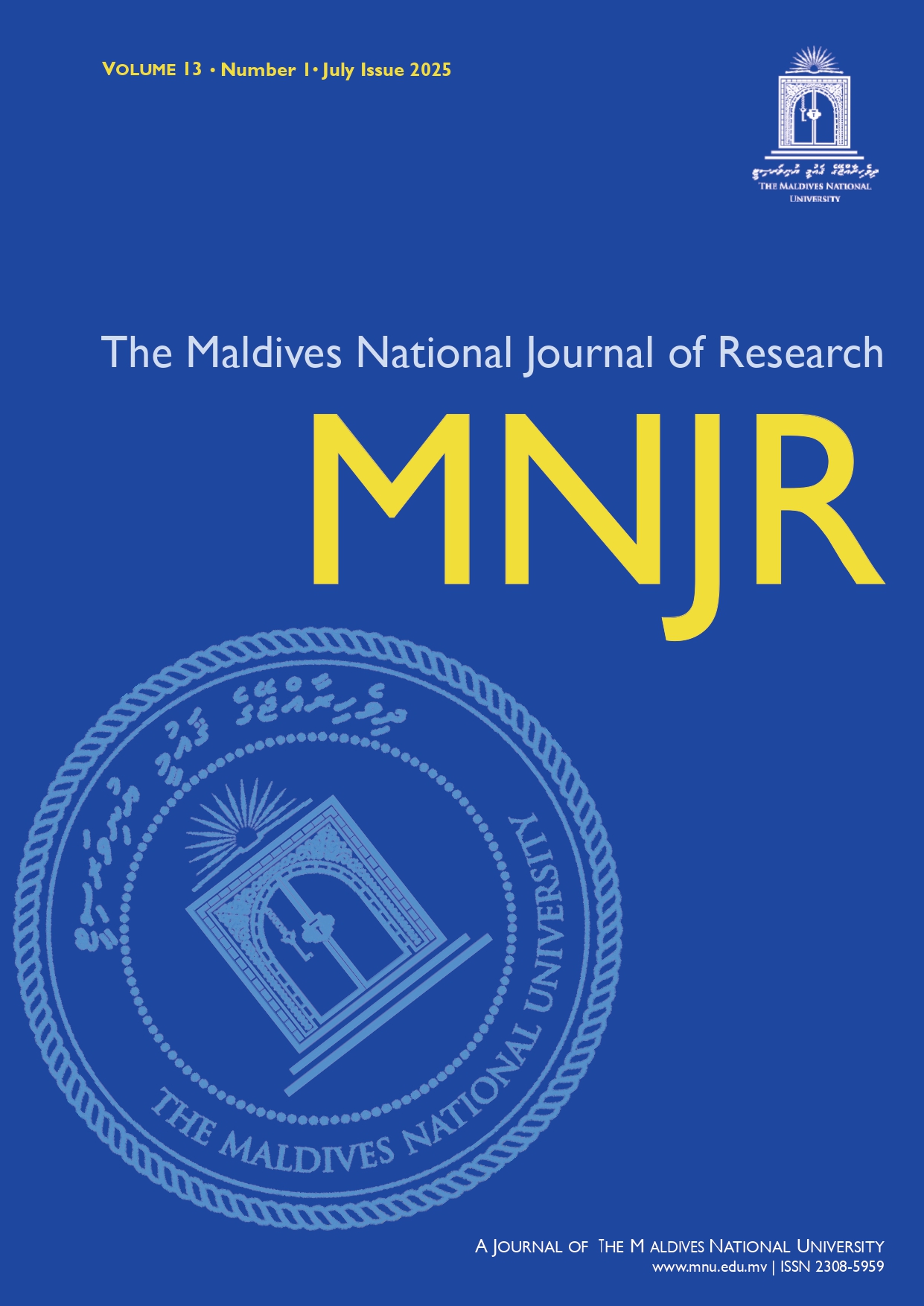Postgraduate student’s perception of using peer review as a pedagogical tool
DOI:
https://doi.org/10.62338/tkhqky40Keywords:
Peer Review, Peer Feedback, Pedagogy, Higher Education, Active LearningAbstract
Peer review is a widely used pedagogical tool in higher education. It involves students providing feedback for their peers’ work, thus contributing to the assessment process alongside or instead of instructors to improve the overall quality of the final output. The purpose of this study is to explore postgraduate student nurses’ experiences of using peer review as a pedagogical tool. The paper aims to: (1) examine the perception of postgraduate students in using peer review, and (2) determine the benefits & challenges of using peer review. A phenomenological approach with a descriptive study design was employed. Data were collected through in-depth interviews and analysed using thematic analysis to capture the participants’ lived experiences. The analysis revealed peer review was unanimously perceived as a beneficial pedagogical tool that enhanced the learning. Three major themes emerged: (1) implementation preferences, (2) increased engagement enhancing learning, and (3) concerns in navigating feedback. The study findings concluded that peer review is a collaborative learning strategy that empowers, motivates, and fosters active learning. Students perceived peer review to have a positive impact on their learning and as a tool that assists in improving their final output. Further research is needed to explore specific strategies and their impact on peer review and student outcomes.
References
Ashenafi, M. M. (2017). An online peer-assessment methodology for improved student engagement and early Intervention (Doctoral dissertation, University of Trento).
Burns, N. & Grove, S. K. (2007). Understanding nursing research: Building an evidence-based practice. (4th ed.). St. Louise: Saunders.
Busetto, L., Wick, W., & Gumbinger, C. (2020). How to use and assess qualitative research methods. Neurological Research and Practice2(1), 14.
Carless, D., Salter, D., Yang, M., & Lam, J. (2011). Developing sustainable feedback practices. Studies in Higher Education, 36(4), 395-407.
Cendani, I. A. S. A., & Purnamaningwulan, R. A. (2023). Exploring challenges of peer feedback in an EFL micro teaching class. Elsya: Journal of English Language Studies, 5(3), 335-347.
De Brún, A., Rogers, L., Drury, A., & Gilmore, B. (2022). Evaluation of a formative peer assessment in research methods teaching using an online platform: A mixed methods pre-post study. Nurse Education Today, 108. https://doi.org/10.1016/j. nedt.2021.105166
Deeley, S. J., Fischbacher-Smith, M., Karadzhov, D., & Koristashevskaya, E. (2019). Exploring the ‘wicked’problem of student dissatisfaction with assessment and feedback in higher education. Higher Education Pedagogies, 4(1), 385-405.
https://doi.org/10.1080/23752696.2019.1644659
Double, K. S., McGrane, J. A., & Hopfenbeck, T. N. (2020). The impact of peer assessment on academic performance: A meta-analysis of control group studies. Educational Psychology Review, 32(2), 481-509.
Fontaine, G., Cossette, S., Maheu-Cadotte, M. A., Mailhot, T., Deschênes, M. F., Mathieu-Dupuis, G., Côté, J., Gagnon, M. P., & Dubé, V. (2019). Efficacy of adaptive e-learning for health professionals and students: A systematic review and meta-analysis. BMJ Open 9(11). https://doi.org/10.1136/bmjopen-2018-025252
Harutyunyan, L., & Poveda, M. F. (2018). Students’ perception of peer review in an EFL classroom. English Language Teaching, 11(4), 138-151.
Holmes, K. (2005). Good, bad and insufficient: Students’ expectations, perceptions and uses of feedback. Journal of Hospitality, Leisure, Sport & Tourism Education, 8(1), 85-96. https://doi.org/10.3794/johlste.81.183
Iglesias Pérez, M. C., Vidal-Puga, J., & Pino Juste, M. R. (2022). The role of self and peer assessment in higher education. Studies in Higher Education, 47(3), 683–692. https://doi.org/10.1080/03075079.2020.1783526
Keerthirathne, W. K. D. (2020). Peer Learning: an Overview. International Journal of Scientific Engineering and Science, 4(11), 1-6.
Kurniawati, H. N. (2021). Students’ perceptions and challenges on peer feedback of efl university students’ writing. RETAIN (Research on English Language Teaching in Indonesia), 9(02), 179-185.
Noroozi, O., Kerman, N., Banihashem, S. K., & Biemans, H. J. (2022). The role of students’ perceived motivation and perceived fairness of peer feedback for learning satisfaction in online learning environments. In Proceedings of the International Conference on Research in Education and Science ICRES 2022 (pp. 273–278).
Panadero, E., & Alqassab, M. (2019). An empirical review of anonymity effects in peer assessment, peer feedback, peer review, peer evaluation and peer grading. Assessment & Evaluation in Higher Education, 44(8), 1253–1278. https://doi.org/10.1080/02602938.2019.1600186
Panadero, E., & Alqassab, M. (2019). An empirical review of anonymity effects in peer assessment, peer feedback, peer review, peer evaluation and peer grading. Assessment & Evaluation in Higher Education, 44(8), 1253–1278. https://doi.org/10.1080/02602938.2019.1600186
Polit, D. F. & Beck, C. T. (2017). Essentials of Nursing Research: Appraising evidence for nursing practice. (7th ed.). Philadelphia: Lippincott Williams & Wilkins.
Prompan, J., & Piamsai, C. (2024). The effects of peer feedback and self-regulated learning on Thai EFL students’ writing ability and self-regulation. Language Education and Acquisition Research Network. 17(1), 100-132.
Rico-Juan, J. R., Cachero, C., & Macià, H. (2022). Influence of individual versus collaborative peer assessment on score accuracy and learning outcomes in higher education: an empirical study. Assessment & Evaluation in Higher Education, 47(4), 570-587.
Serrano-Aguilera, J. J., Tocino, A., Fortes, S., Martín, C., Mercadé-Melé, P., Moreno-Sáez, R., ... & Torres, A. (2021). Using peer review for student performance enhancement: Experiences in a multidisciplinary higher education setting. Education Sciences, 11(2), 71. https://doi.org/10.3390/educsci11020071
Tornwall, J., & Ikonen, R. (2024). Student peer review and receptiveness to feedback in global classrooms. Nurse Educator, 49(2), 96–101. https://doi. org/10.1097/NNE.0000000000001523
Ugwu, C. N. and Eze Val, HU (2023). Qualitative research. IDOSR Journal of Computer and Applied Sciences, 8(1), 20-35.
Väyrynen, K., Lutovac, S., & Kaasila, R. (2023). Reflection on peer reviewing as a pedagogical tool in higher education. Active Learning in Higher Education, 24(3), 291–303. https://doi.org/10.1177/14697874211073045
Zaccaron, R., & Puntel Xhafaj, D. C. (2024). Teacher and peer feedback on english as an additional language writing: the role of social representations. Profile Issues in Teachers Professional Development, 26(1), 49-64.



